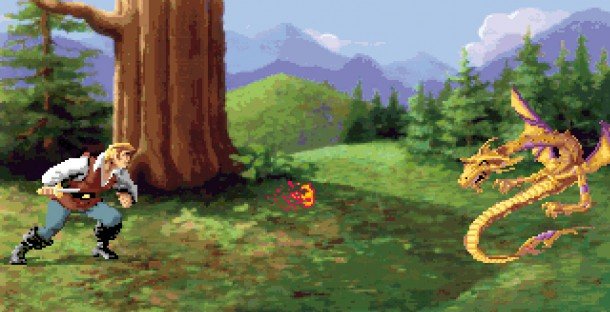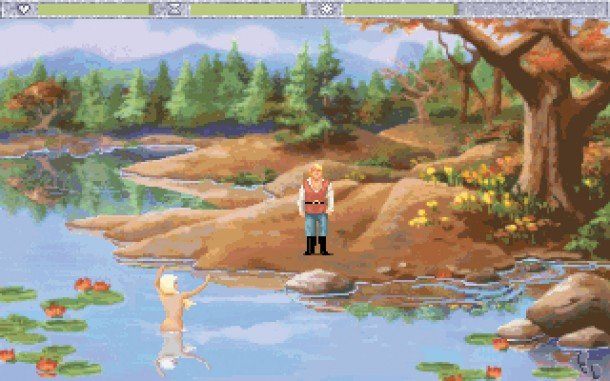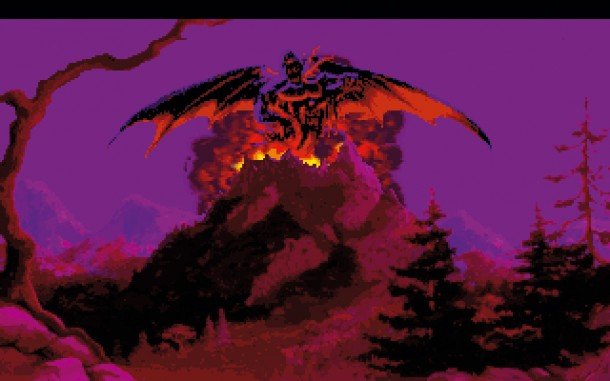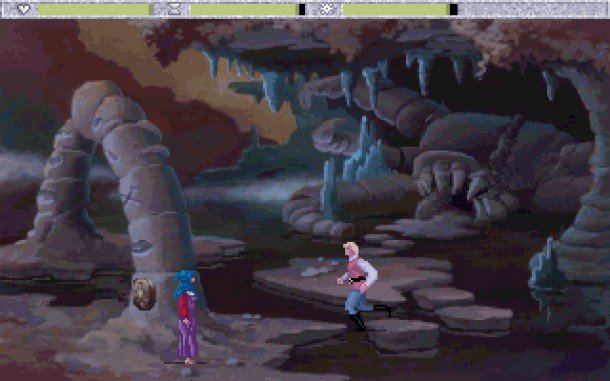Quest for Glory 4 made great use of Slavic myth, and a surprisingly sympathetic villain
Reinstall.

This article originally appeared in issue 246 of PC Gamer UK. Once you're done, have a look at Rich's article on the controversial fan-made Quest For Glory 4 1/2. Series creators Lori and Corey Cole returned with spiritual sequel Hero-U, which avoided disaster to resurrect '90s adventure game nostalgia.
Mordavia is a land in need of more than just another exterminator. It needs a Hero with a capital H: a man strong enough to not merely fight the darkness, but to bring light into dark places.
You're not the strongest in the land, not by a long shot. Even with a bag of spells, you're not the most powerful. You're not even a legend. You're simply a man for whom no problem is too small, committed to saving the world with a few acts of bravery and a hundred tiny moments of kindness.
Quest for Glory 4 is one of my favourite adventures of all time, and for many reasons. The wonderful setting, which doesn't simply borrow Slavic mythology like the Rusalki and Leshy and Domovoi, but assumes you're smart enough to simply roll with the unfamiliar until you figure out what makes them tick. The general vibe, bouncing effortlessly from jokes and wordplay to genuinely touching scenes and then right back to killer rabbits straight out of Monty Python. John Rhys-Davies' narration, which grounds everything, is amazing, especially when you know that he had no idea how much work he was in for. And then there's Katrina, one of my favourite... well... 'villain' is such a strong word, isn't it?
First though, a quick primer. Quest for Glory is an adventure/RPG hybrid, with the emphasis mostly on the adventure side: puzzles, dialogue, plenty of deaths. While the games are connected by a few characters and threads, they're mostly self-contained stories set in completely different parts of a fantasy world. You typically arrive as a stranger and save the place, only without actually getting much of the 'glory' promised by the title before being whisked away to your next challenge. It's an amazing series, and well worth playing through in order—not least because you can carry your character between games. This doesn't change anything except your stats, but then it was the early '90s.

The RPG side comes in combat and a few stats, but mostly the class system. Whether you're a Fighter, Wizard, Thief, or Paladin (if you acquired the title in a previous game) adds extra scenes and things to do, and shakes up the puzzles. Faced with a trapped chest, for instance, a Wizard can cast Open from a distance, while a Fighter may have to take the hit to the beef. Elsewhere, a Paladin will be drawn to cleansing the valley of evil, while a Thief gets to do a little recreational breaking-and-entering. For the greater good, obviously. Ahem.
Quest for Glory 4 is set in a relatively small valley, but one packed with fun stuff, from the haunted castle on the hill to a camp of werewolves, the chicken-legged hut of Baba Yaga, and the main town of Mordavia itself, where garlic hangs from every surface and nobody has a kind word for strangers.
The biggest gaming news, reviews and hardware deals
Keep up to date with the most important stories and the best deals, as picked by the PC Gamer team.

They slowly warm to you, but for much of the game the only thing most people want to know is when you'll be leaving. Even here, it's done with a wink—especially from a trio at the inn whose voice actors made up most of their own lines, and a mad scientist who refuses to accept he lives in a world of magic.
Easily the star of the show, however, is the mysterious woman called Katrina (voiced by Jennifer 'Shepard' Hale, in her first videogame role). Katrina shows up at the start and reappears every few evenings. Her relationship with the hero is odd—their meetings brief, casually flirtatious, and played out like little dates she obviously looks forward to.
It's not exactly tough to work out this girl from the spooky castle who only comes out at night is both a vampire and the Dark Master of the valley. The game just assumes you get it, with a bit of wiggle-room for "Maybe she's his daughter?" until the official reveal comes via an overheard conversation so casual that it goes without any comment.
What is surprising, even beautiful, is how sympathetic the story is towards her. She may be on the cusp of summoning an elder god to blot out the sun, but only because she's been driven to desperation by loneliness and having to maintain her 'Dark Master' title. Even her most evil act, turning the local innkeepers' child into her vampire daughter, is somewhat defanged—so to speak—by the girl adoring her 'Aunt Trina'.

Most important is her friendship with the Hero, which starts as simple manipulation, but ultimately turns out to be genuine. To the point that, in retrospect, she's obviously stalling for time by not even asking him to do what she needs of him. Later, when she catches him apparently about to stake her through the heart, it's not the attempted murder that she objects to—it's the betrayal.
Many games have dressed their lady villains in sexy leather and handed them whips to play with. Rarely has it been so obviously an act, with Katrina actively burying herself in 'evil' tropes out of both hurt and a desperate need to regain control. Never has an RPG villain been so easy to feel sorry for, even as she angrily flays your back to shreds in her personal torture dungeon.
In an already wonderful game, human moments like these stand out—not just for being great, but for being so rare even years later. Don't think everything's been spoiled for you if you haven't already played it—it hasn't, I promise. Aside from anything else, it's easy to stumble into most of these reveals early, thanks to an open world environment that doesn't block you unless it absolutely has to, and Quest for Glory as a series is full of such great moments.
All five games are in a single pack, and there's no better way to go from zero to hero on your PC than to fire up the first and keep playing until the credits roll at the end of the fifth.

